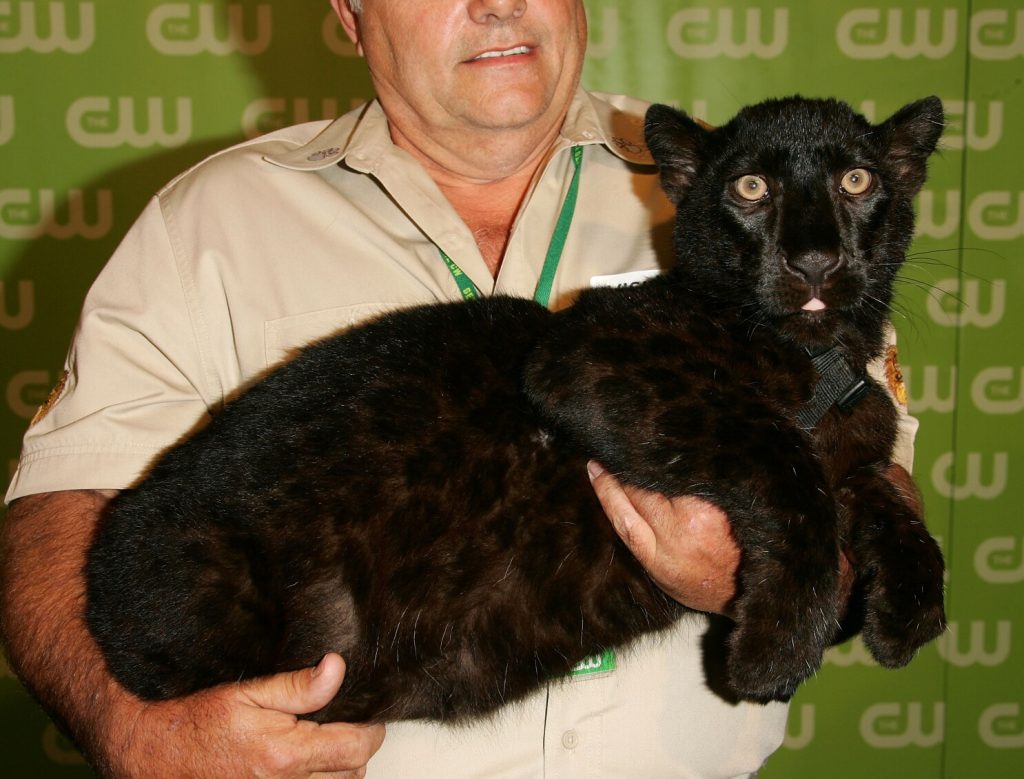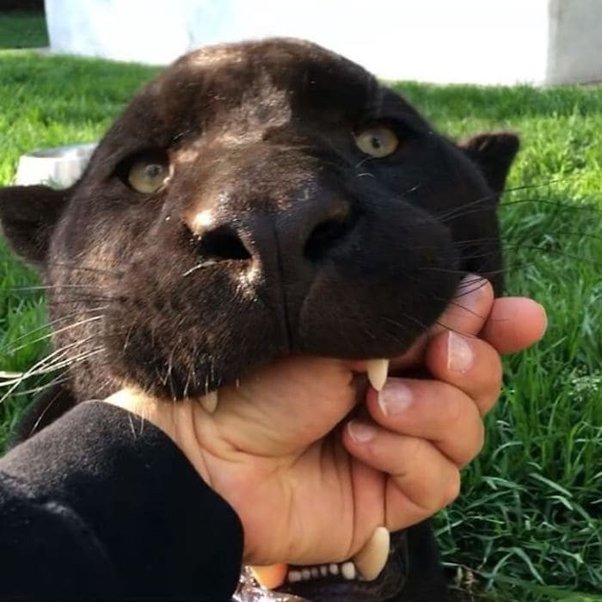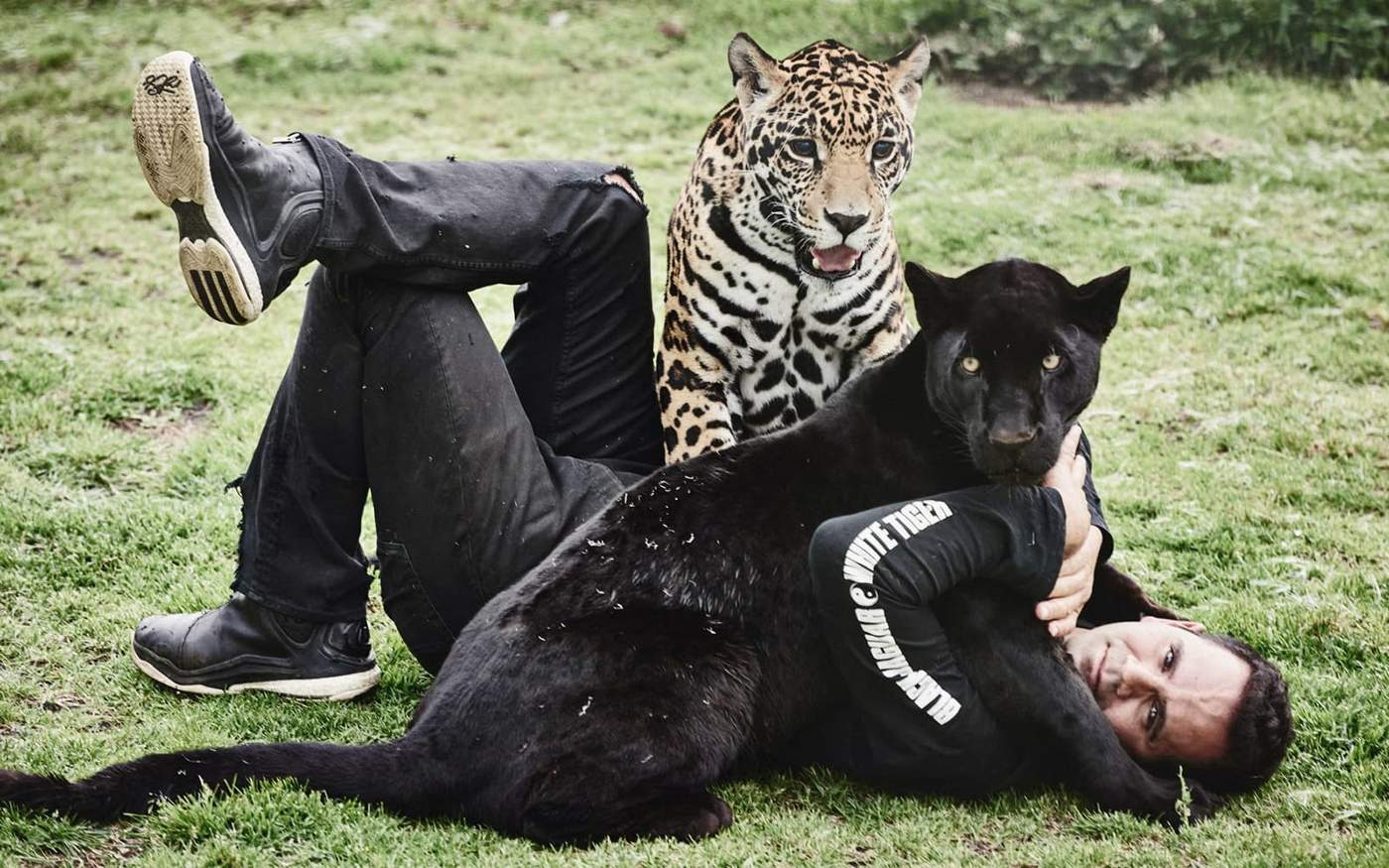Imagine the allure of having a sleek, powerful panther as a pet. It’s an intoxicating thought, isn’t it? But before you start planning your panther playground, let’s cut to the chase: owning a panther is a legal minefield, fraught with complex regulations and serious ethical considerations.
As of September 2023, 35 states have laws banning big cats, while others allow certain species or require permits. For example, Florida doesn’t allow panthers as pets due to their nature and habits. In India, private ownership of endangered cats like panthers is prohibited unless the owner has a certificate. The Captive Wildlife Safety Act of 2004 also bans interstate and foreign trade in exotic cats for the pet trade.
Can You Own a Pet Panther?

The Legal Landscape of Panther Ownership
Federal Laws
When it comes to owning a panther, you’ll first bump into a wall of federal regulations. The big players here are:
- The Endangered Species Act (ESA) Enacted in 1973, the ESA is the heavyweight champion of wildlife protection laws. It’s got teeth, and it’s not afraid to use them.
- Prohibits the “taking” of endangered species, which includes harassing, harming, pursuing, hunting, shooting, wounding, killing, trapping, capturing, or collecting.
- Makes it illegal to import, export, or sell endangered species in interstate or foreign commerce.
- Exceptions exist for scientific purposes and conservation efforts, but good luck getting one for your living room panther.
- The Captive Wildlife Safety Act (CWSA) This 2003 amendment to the Lacey Act threw a wrench in the works for would-be big cat owners.
- Prohibits the interstate transport of big cats (including panthers) for the pet trade.
- Applies to lions, tigers, leopards, cheetahs, jaguars, cougars, and any hybrid of these species.
- Exceptions include licensed zoos, wildlife sanctuaries, and certain research facilities.
- The Animal Welfare Act (AWA) First passed in 1966 and amended several times since, the AWA sets the bar for animal care standards.
- Regulates the treatment of animals in research, exhibition, transport, and by dealers.
- Requires licensing for certain animal activities, including exhibiting exotic animals.
- Doesn’t directly prohibit private ownership but sets care standards that are tough for the average Joe to meet.
State Laws: A Patchwork of Regulations
If you’ve made it past the federal hurdles, congratulations! Now prepare for the state-level obstacle course. Each state has its own set of rules, ranging from outright bans to surprisingly lax regulations.
States with Outright Bans

As of 2024, 35 states have comprehensive bans on private ownership of big cats, including panthers. These include:
- Alaska
- California
- Colorado
- Connecticut
- Florida
- Georgia
- Hawaii
- Illinois
- Kentucky
- Louisiana
- Maryland
- Massachusetts
- Michigan
- Minnesota
- New Hampshire
- New Jersey
- New York
- Ohio
- Oregon
- Pennsylvania
- Rhode Island
- Tennessee
- Utah
- Vermont
- Virginia
- Washington
- West Virginia
- Wisconsin
- Wyoming
- Delaware
- Indiana
- Kansas
- Maine
- Montana
- North Dakota
In these states, you can kiss your panther dreams goodbye unless you’re running a zoo or wildlife sanctuary.
States with Partial Restrictions
Some states allow big cat ownership but with significant strings attached:
- Arizona: Requires a license and proof of proper facilities.
- Idaho: Permits ownership with a license from the Department of Agriculture.
- Mississippi: Allows ownership with a permit from the Department of Wildlife, Fisheries, and Parks.
- Missouri: Requires registration with local law enforcement.
- Nebraska: Permits ownership with a license from the Game and Parks Commission.
- North Carolina: Allows ownership with a permit from the Wildlife Resources Commission.
- South Carolina: Requires a license from the Department of Natural Resources.
- Texas: Permits ownership with registration and liability insurance.
The Wild West: States with Few Restrictions
As of 2024, only a handful of states have relatively lax laws regarding big cat ownership:
- Alabama: No state law prohibiting ownership.
- Nevada: No specific state law, but local ordinances may apply.
- Oklahoma: No state ban, but local restrictions may exist.
- South Dakota: No state law prohibiting ownership.
- Wisconsin: No state ban, but local ordinances may restrict ownership.
Local Laws: The Final Frontier
Even if your state gives you the green light, don’t pop the champagne just yet. Local laws can still throw a wrench in your plans.
- Many cities and counties have ordinances prohibiting exotic pet ownership.
- Some require special permits or have zoning restrictions.
- Local animal control agencies may have the authority to seize animals they deem dangerous.
Case Studies: When Panther Ownership Goes Wrong
To illustrate the real-world implications of these laws, let’s look at some notable cases:
- The Zanesville Animal Massacre (2011) In Ohio, Terry Thompson released 56 exotic animals, including 18 Bengal tigers and 17 lions, before taking his own life. Police were forced to kill most of the animals to protect public safety. This incident led to Ohio tightening its exotic animal ownership laws.
- The Tiger King Saga (2020) Joe Exotic’s Greater Wynnewood Exotic Animal Park in Oklahoma became the center of a Netflix documentary and a federal investigation. Exotic was ultimately convicted on 17 federal charges of animal abuse and two counts of murder-for-hire.
- The Bronx Zoo Tiger COVID-19 Case (2020) A tiger at the Bronx Zoo tested positive for COVID-19, highlighting the potential public health risks associated with big cat ownership.
These cases underscore the complex legal, ethical, and public safety issues surrounding exotic animal ownership.
The Practical Realities of Panther Ownership
Let’s say you’ve somehow navigated the legal labyrinth and gotten permission to own a panther. What now? Here’s what you’re in for:
Housing Requirements
Forget about keeping your panther in the spare bedroom. You’ll need:
- A large, secure outdoor enclosure (think 1,000 square feet minimum)
- High fences (at least 12 feet tall) with overhangs to prevent climbing
- Double-door entry systems for safety
- Shelter from the elements
- Environmental enrichment (climbing structures, pools, etc.)
Dietary Needs
Hope you’ve got deep pockets and a strong stomach:
- Adult panthers eat 8-10 pounds of meat daily
- That’s about 3,000-3,650 pounds of meat per year
- Annual food cost: $10,000-$15,000 (based on average meat prices)
- You’ll need to source whole prey items for proper nutrition
Veterinary Care
Finding a vet for your house cat is easy. For a panther? Not so much.
- Specialized exotic animal vets are rare and expensive
- Annual check-ups can cost $1,000-$3,000
- Emergency care? Think $5,000-$10,000 per incident
Insurance and Liability
Owning a panther is a lawsuit waiting to happen. You’ll need:
- Exotic animal liability insurance (if you can find a provider)
- Expect premiums of $10,000-$20,000 annually
- Coverage typically starts at $1 million
Public Safety Concerns
Your neighbors might not be thrilled about your new pet:
- Risk of escape and injury to humans or other animals
- Potential disease transmission (zoonotic diseases)
- Noise complaints (panthers can roar up to 114 decibels)
The Ethical Debate: Should You Own a Panther?
Legal issues aside, let’s tackle the elephant (or panther) in the room: is it ethical to keep these wild animals as pets?
Arguments Against Panther Ownership
- Animal Welfare
- Panthers have complex physical and psychological needs that are difficult to meet in captivity.
- Captive-bred animals often suffer from health issues due to inbreeding.
- Many owners are unprepared for the long-term commitment (panthers can live 20+ years).
- Public Safety
- Even well-trained big cats retain their predatory instincts.
- Escapes can lead to tragic outcomes for both humans and animals.
- Conservation Impact
- Private ownership can fuel illegal wildlife trade.
- Resources spent on private pets could be directed towards conservation efforts.
- Zoonotic Disease Risk
- Big cats can carry diseases transmissible to humans, like tuberculosis.
Arguments For (Limited) Panther Ownership
- Conservation Education
- Properly managed facilities can raise awareness about big cat conservation.
- Some argue that personal connections with exotic animals can inspire conservation efforts.
- Rescue and Rehabilitation
- Sanctuaries and rescue centers provide homes for animals that can’t be released into the wild.
- Research Opportunities
- Captive animals can provide valuable data for conservation efforts.
The Global Perspective: Panther Ownership Around the World
The debate over exotic pet ownership isn’t limited to the U.S. Let’s take a world tour:
United Kingdom
- The Dangerous Wild Animals Act 1976 requires a license for keeping dangerous animals, including big cats.
- Licenses are rarely granted for private ownership.
European Union
- EU Wildlife Trade Regulations align with CITES (Convention on International Trade in Endangered Species).
- Most EU countries have strict regulations on exotic pet ownership.
United Arab Emirates
- Known for lax exotic pet laws, but recent regulations have tightened.
- In 2017, a law was passed banning the private ownership and trade of exotic animals.
China
- Has seen a rise in exotic pet ownership, including big cats.
- In 2020, China banned the trade and consumption of wild animals, impacting exotic pet ownership.
South Africa
- Has a thriving captive big cat industry, often criticized by animal welfare groups.
- The National Environmental Management: Biodiversity Act regulates the keeping of indigenous wild animals.
The Future of Panther Ownership: Trends and Predictions
As we look ahead, several factors are shaping the future of exotic pet ownership:
- Stricter Legislation
- The Big Cat Public Safety Act, introduced in the U.S. Congress, aims to further restrict big cat ownership.
- Many states are considering or have recently passed more stringent exotic pet laws.
- Public Opinion Shift
- Increased awareness of animal welfare issues is turning public opinion against exotic pet ownership.
- Social media and documentaries have spotlighted the darker side of the exotic pet trade.
- Advancements in Virtual and Augmented Reality
- Could VR experiences satisfy the desire to interact with exotic animals without the ethical concerns?
- Focus on Conservation
- There’s a growing emphasis on supporting wild populations rather than keeping exotic pets.
- Eco-tourism is providing alternatives to private ownership for animal enthusiasts.
- Sanctuary Growth
- As private ownership becomes more restricted, there’s an increased need for sanctuaries to house surrendered animals.
Alternatives to Panther Ownership
For those captivated by big cats but unable (or unwilling) to own one, consider these alternatives:
- Volunteer at a Wildlife Sanctuary
- Many reputable sanctuaries offer volunteer programs.
- You can work closely with big cats without the legal and ethical concerns of ownership.
- Support Conservation Organizations
- Organizations like Panthera focus on wild cat conservation.
- Your support can have a real impact on preserving wild populations.
- Become a Zoologist or Wildlife Biologist
- Turn your passion into a career studying and protecting big cats.
- Wildlife Photography
- Capture the beauty of big cats in their natural habitats.
- Virtual Adoption Programs
- Many sanctuaries offer “adoption” programs where you can support a specific animal.

The Alternative Options for Panther
Panthers are wild animals. But if you want exotic pet animals, you should go with the ones that won’t kill you. So I have listed some alternative options to a pet instead of a Panther. Please check it out:
Lizards
Lizards have a docile nature. This reptile can live with you very well with proper care. But if you make them feel unsafe, they may injure you.
Birds
Birds are friendly to their owners. They can be easily tamed. They also make great companions. So, if you have other pets in the house, you have no fear of them hurting your other pets.
Cats
Small cats are domesticated pets. You can have domestic cats as pets. They will be good pets. You can easily befriend them. But at first, it may get difficult for them to trust you. So you need to have a gentle approach to them. They will gradually build their trust in you.
Petting dangerous wild animals is never a good idea. The Panthers are terrible pets. They are wild and exotic. So these alternatives are good for human safety. They make good pets. Besides, owning a panther requires a lot of skill to handle them. If you don’t have permission to own a panther, then you should not pet them.
Conclusion
Owning a panther is a complex issue that goes far beyond the simple question of “can you?” While it may be technically possible in some jurisdictions, the legal, ethical, and practical hurdles make it a daunting prospect. As we’ve seen, the laws surrounding exotic pet ownership are extensive and varied, with good reason. The welfare of the animals, public safety concerns, and conservation implications all play crucial roles in shaping these regulations.
For those drawn to the majesty of big cats, there are numerous ways to appreciate and support these magnificent creatures without the complications of private ownership. As we move forward, it’s likely that regulations will continue to tighten, reflecting a growing understanding of the challenges and responsibilities involved in keeping such powerful predators as pets.
Ultimately, the question isn’t just whether you can own a panther, but whether you should. And for the vast majority of us, the answer to that question is a resounding no.
FAQs
Does Panthers Like Humans?
Usually, panthers are not domesticated pets. But they won’t harm humans unless they feel threatened by them. But as they are wild animals, you should not trust petting them. They can undoubtedly harm you even if they are practically safe from you.
What Is The Cost Of A Panther?
The cost of a Panther may vary between $500-$5000. You may get confused because of the price variation. Well, the price can depend on their size and age. So, the price strongly depends on your preference for the Panther.
Can Panthers Kill Other Animals?
Yes. Panthers can kill people and other pets. They are predators so it is frequent for them to kill animals such as cats and dogs. Apart from this, there has been a huge record of Florida panthers killing other animals in Florida.
can panthers be domesticated
No, panthers cannot be domesticated like cats and dogs because they retain their natural instincts to hunt and attack, even if raised in captivity. In fact, the Animal Welfare Institute says that big cats have been involved in hundreds of dangerous incidents in the United States. In 2004, the Captive Wildlife Safety Act was passed in the U.S. House of Representatives to prohibit the interstate and foreign trade of exotic cats for the pet trade, including panthers. In Florida, panthers are considered Class I Wildlife and are not allowed to be owned as pets.
However, some people have had success raising panthers in captivity. For example, a Russian woman named Victoria raised a panther named Luna that was born in a Siberian zoo and rejected by its mother. Victoria has experience with big cats and set up a TikTok account to document Luna’s domestic life. Panthers can also live longer in captivity than in the wild, with a lifespan of up to 20 years compared to 12 years.



